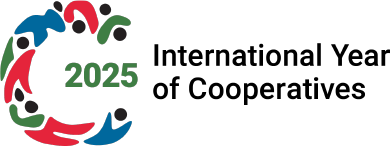DEPARTMENT OF UROLOGY
The Department of Urology at AGMC is dedicated to the diagnosis, treatment, and management of disorders related to the urinary tract and male reproductive organs. The department combines advanced medical techniques with compassionate care to address a wide range of urological conditions.
1. Academic Curriculum
The department offers education and training for undergraduate (MBBS) and postgraduate (MS Urology) students. Key areas of study include:
- General Urology: Management of common urological conditions such as urinary tract infections, kidney stones, and benign prostatic hyperplasia (BPH).
- Endourology: Minimally invasive techniques for treating urological disorders, including laser lithotripsy and ureteroscopy.
- Urological Oncology: Diagnosis and treatment of urological cancers, including prostate, bladder, and kidney cancers.
- Pediatric Urology: Management of urological conditions in children, including congenital anomalies and urinary tract infections.
- Male Infertility: Evaluation and treatment of male reproductive disorders and infertility issues.
- Urological Surgery: Advanced surgical techniques for various urological conditions, including laparoscopic and robotic surgery.
2. Clinical Services
The Department of Urology provides a comprehensive range of clinical services:
- General Urology Care: Evaluation and management of common urological conditions such as urinary tract infections, incontinence, and prostate enlargement.
- Endourological Procedures: Minimally invasive treatments for kidney stones, ureteral strictures, and other urological issues.
- Urological Oncology: Surgical and non-surgical treatment options for cancers of the urinary tract and male reproductive organs.
- Pediatric Urology: Specialized care for children with urological disorders, including congenital abnormalities and infections.
- Male Infertility Management: Assessment and treatment of male infertility, including hormonal therapies and surgical interventions.
- Reconstructive Urology: Surgical procedures for reconstructing the urinary tract and addressing complications from previous surgeries or injuries.
3. Faculty
The department is led by experienced urologists and specialists:
- Head of Department (HOD): Dr. [Name], MS Urology, specializing in [specialization], leading the department’s urological services and educational programs.
- Senior Faculty Members: Experts in various aspects of urology, including endourology, oncology, pediatric urology, and reconstructive urology.
4. Workshops, Seminars, and Conferences
The department organizes educational events to advance knowledge and skills in urology:
- Workshops on Urological Techniques: Hands-on training in advanced urological procedures, including minimally invasive and robotic surgeries.
- Seminars on Urological Disorders: Discussions on current trends, case studies, and innovations in urological care.
- Conferences on Urology: Exploration of new research, technologies, and best practices in urology and related fields.
5. Facilities and Resources
The Department of Urology is equipped with state-of-the-art facilities:
- Urological Theatres: Equipped with advanced surgical tools and technology for urological procedures.
- Endourology Suite: Specialized area for performing minimally invasive procedures such as laser lithotripsy and ureteroscopy.
- Diagnostic Imaging: On-site imaging services, including ultrasound, CT scans, and MRI, for accurate diagnosis and treatment planning.
- Urological Clinic: Outpatient clinic for evaluation, management, and follow-up of urological conditions.
6. Research and Publications
The department is actively involved in research to improve urological care and management:
- Urology Research: Studies on new treatments, surgical techniques, and patient outcomes in urology.
- Oncological Research: Investigation into new approaches for the treatment of urological cancers.
- Pediatric Urology Research: Research on congenital urological conditions and innovative treatments for children.
- Publications: Faculty members contribute to scientific journals and conferences with research findings and clinical insights.
7. Student Involvement
Students are actively engaged in practical training and research:
- Clinical Rotations: Hands-on experience in the urology unit, including patient assessment, diagnostic procedures, and surgical interventions.
- Research Projects: Opportunities to participate in research related to urology, including clinical studies and experimental treatments.
- Educational Activities: Involvement in workshops, seminars, and case discussions to enhance understanding of urological practices.
8. Community Outreach Programs
The department is committed to improving urological care and awareness through outreach initiatives:
- Urology Awareness Campaigns: Educating the community about urological disorders, prevention, and available treatments.
- Health Camps: Conducting community health camps to provide basic urological assessments and medical education.
- Support Groups: Organizing support groups for patients with urological conditions and their families.
9. Future Directions
The Department of Urology at AGMC aims to:
- Enhance Urological Services: Invest in advanced technologies and improve urological care processes.
- Promote Research and Innovation: Foster research in urology to advance patient outcomes and treatment techniques.
- Expand Community Outreach: Increase outreach programs and educational initiatives to enhance awareness and prevention of urological disorders.
- Advance Education and Training: Develop new educational programs and training opportunities to stay current with advancements in urology.


